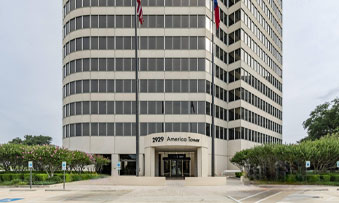Texas Commercial Truck Insurance Requirements

Truck accidents are among the most devastating incidents that can occur between motor vehicles. The nature of commercial vehicles and their sheer size and weight lead to more catastrophic accidents that include severe injuries and extensive property damage. For this reason, commercial truck drivers and trucking companies will carry special insurance.
Texas requires both truck drivers and trucking companies to carry certain policies with specific minimums. Ultimately, this is to protect everyone involved. However, in many cases, it is necessary for victims to pursue further compensation to fully recover. For this reason, it is vital that those who have experienced an injury from an accident involving a commercial vehicle partner with a truck accident attorney.
Truck Accident Attorney in Texas
The team at the Merritt & Merritt Law Firm has dedicated their entire practice to helping victims of truck accidents, including semi-trucks, big rigs, tractor-trailers, and other large commercial vehicles. We know that every case is unique, but we also believe that every victim is entitled to full compensation that is fair and just. We don’t accept minimum settlements, and we can fight on our clients’ behalf to ensure that the most favorable outcome is secured.
Who Is Liable for a Trucking Accident in Texas?
Texas follows a fault-based system for all motor vehicle accidents, including those involving commercial vehicles. This means that the party that is determined to have acted negligently is considered at fault. The negligent party’s insurance company, then, is typically responsible for covering all injuries and losses incurred by the victim(s) of an accident.
If a trucking company has CGL insurance, their plan will cover any claims made in a personal injury case against them, protecting them from further liability.
What Insurance Is Required by Law in Texas?
Trucking companies in Texas are required by law to maintain proof of liability insurance for each registered vehicle. The Federal Motor Carrier Safety Administration (FMCSA) oversees commercial vehicles nationwide and establishes many of the particular requirements. Commercial trucks generally have steeper liability limits because the accidents in which they are involved have a greater chance of leading to severe injuries and greater damage.
What Other Legal Requirements Are There for Commercial Trucks?
The FMCSA has set forth additional rules and regulations in an effort to protect those hurt in collisions with large trucks, such as big rigs, semi-trucks, and tractor-trailers. The regulations set forth for trucking companies (also known as motor carriers), commercial trucks, and commercial truck drivers aim to minimize the risk of wrecks, protect public motorists, and establish penalties for federal violations. These regulations cover a range of issues, including:
- Truck operation, such as limiting schedules and requiring driver logbooks
- Truck maintenance and repair
- The qualifications required to become a truck driver
- Trucking complaint investigations
- Trucking terminal audits
- Governing weigh stations
Any vehicle is required to follow FMCSA regulations that is used for:
- Interstate commerce on public highways
- Transporting property or passengers
- Weighs over 10,000 pounds
- Transports more than 15 people uncompensated, or more than 8 for compensation
- Shipping hazardous materials
Is Business Insurance Required in Texas?
Business insurance, known as commercial general liability (CGL) insurance, is not required in Texas. However, though Texas law does not require professional liability insurance, it is highly recommended, as it protects business owners against liability claims. For example, if a trucking company’s commercial vehicle is involved in an accident, CGL insurance will protect the company against personal injury claims.
What Is Full Coverage Insurance in Texas?
Full coverage insurance in Texas includes:
- The mandated state minimum bodily injury and property damage liability coverage
- Personal injury protection
- Collision
- Comprehensive coverage
- Uninsured/underinsured motorist coverage
By maintaining liability, collision, and comprehensive coverage, you are protected in the event of an accident. Coverage is considered full when the total policies combine to cover and protect the driver, the vehicle, and the company to the fullest extent possible.
What Is the Minimum Commercial Insurance in Texas?
Texas’ state minimum liability limit is called a split limit, as it separates dollar amounts payable by insurers for both bodily injury and property damage into three groups:
- Individuals injured
- All parties injured
- All property damage resulting from an accident
The minimum commercial insurance in Texas is 30/60/25, which means:
- $30,000 for each person injured in an accident
- $60,000 for all people injured in an accident
- $25,000 for all property damaged in an accident
Additionally, Texas state law requires personal injury protection (PIP) insurance. These requirements are for truck drivers. Depending on the type of vehicle, some requirements may be higher for the trucking company. For instance, trucking companies must carry the following minimums under each given circumstance:
- $300,000 if the commercial truck transports household goods within the state and weighs under 26,000 pounds
- $500,000 if the commercial truck transports household goods within the state and weighs over 26,000 pounds
- $750,000 if the commercial truck transports household goods out of state
- $1,000,000 if the commercial truck carries oil
- $5,000,000 if the commercial truck carries hazardous materials
It should be noted that the current minimums for liability were legally established over 40 years ago. Adjusted for inflation, trucking companies would need to carry nearly five times the coverage to compensate victims to the same degree by today’s standards. That means a $750,000 limit would need to be raised to at least $3.5 million.
Will I Be Compensated for Injuries Sustained in a Trucking Accident?
If you have sustained a loss or injury in an accident with a commercial truck, it is vital that you pursue full compensation for all damages. Unfortunately, the legal insurance minimums may not cover everything. In these cases, by working with a qualified and skilled accident attorney, you can pursue further action against the at-fault parties to secure a fair and just settlement amount. The following comprises the types of claims you can make for compensation:
- Medical expense claims. Emergency medical care, hospitalizations, surgeries, medical procedures, follow-up care, prescription medication, physical and occupational therapy, and any required ongoing care associated with accident injuries should be covered in a claim. The claim amount will be affected by the severity of the injuries.
- Property damage claims. Commercial trucks can cause significant property damage in an accident. All repair and replacement costs should be covered in a claim made against the at-fault party.
- Lost wages claims. Most victims will be out of work while they recover from their injuries. Because truck accident injuries tend to be more serious, healing can take a significant amount of time. Additionally, some injuries are long-term and may prevent victims from ever returning to the same place of work or occupation. Lost wage claims seek to recover income that was unable to be earned during healing as well as to cover for any loss of future earnings capacity.
- Pain and suffering claims. The legal doctrine behind personal injury claims revolves around the principle of returning a victim to a “wholeness” of how they were before the accident. Reimbursement for economic losses is necessary, but it does not cover the non-economic loss of having to experience physical, mental, and emotional distress as a result of an accident. Pain and suffering claims seek to compensate for this.
What Is Covered in a Wrongful Death Case?
If a truck accident resulted in the death of one of the victims, their family can pursue compensation on their behalf. They would be entitled to receive the same settlement the decedent would have received had they survived. In addition to covering any medical, emergency care, or property damage costs, surviving family members are entitled to recover additional compensation, including:
- Funeral costs. Claims can seek compensation for the cost of funeral arrangements, interment costs, and other expenses associated with laying a loved one to rest.
- Loss of consortium. Similar to pain and suffering claims, loss of consortium seeks to compensate for the non-economic loss associated with losing a loved one. This includes the loss of love, companionship, support, comfort, and intimacy provided in the relationship.
- Loss of household income. Similar to lost wages, this claim seeks to recover the loss of all future earnings, income, and inheritance that would have been received had the decedent lived an otherwise full life.
- Punitive damages. It is common for wrongful death cases to include additional non-compensatory claims to discourage future occurrences and promote safer practices. The court will decide what it deems to be an appropriate amount for awarding punitive damages to the victim’s family.
Speak With a Qualified Texas Truck Accident Attorney Today
If you or someone you love has been injured, or if your family has endured a wrongful death, due to an accident involving a commercial vehicle, it is important that you speak with an experienced and qualified truck accident attorney as soon as possible. The Merritt & Merritt Law Firm offers case reviews to new clients. Let us discuss the details of your case with you. It may be that the insurance company that covers the at-fault trucking company is not otherwise willing to pay a fair settlement amount. To secure the compensation you deserve, contact our office today.
Types of Commercial Vehicles Involved in Trucking Accidents
Trucking accidents account for some of the most deadly and catastrophic accidents on the road. Commercial vehicles, however, can take a variety of sizes and shapes, from buses to big rigs. In a state that leads the country in traffic accident fatalities, Texas commercial vehicles account for a significant number of devastating crashes.
For those involved in a trucking accident with a commercial vehicle, it is vital to partner with an experienced accident attorney with a specific background in handling cases that involve commercial vehicles of all sorts. The lawyers at the Merritt & Merritt Law Firm have dedicated their practice to helping clients who have endured accidents that involve every conceivable type of commercial vehicle.
What Is a Commercial Vehicle?
The Federal Motor Carrier Safety Regulations (FMCSR) is a national agency that is responsible for overseeing commercial vehicle operations throughout the country. According to their specifications, a vehicle is considered a commercial motor vehicle (CMV) if:
- The gross vehicle weight rating (GVWR) or gross combination weight (GCW) of more than 10,000 pounds.
- It is designed for commerce purposes, such as for carrying goods or passengers (8 or more for compensation, or 16 or more without compensation).
- It is used to carry hazardous materials that require an official placard.
Passenger Commercial Vehicles
To start, many vehicles qualify as CMVs because they are designed to transport at least eight people, including the driver, for compensation. This list includes:
- Charter buses
- Tour buses
- Shuttles, such as airport shuttles, hotel shuttles, and corporate shuttle vans
- Large taxis
- Limousines
- Party buses
- Large rideshare vehicles, such as vans
Some CMVs are designed to carry at least 16 people, whether for compensation or not. They include:
- Buses
- School buses
- Transit buses
- Trolleys
- Paratransit vans
Large Truck Commercial Vehicles
The following list comprises the more common large truck commercial vehicles:
- 18-wheelers
- Semi-trucks
- Tractor-trailers
- Big rigs
- Garbage trucks
- Dump trucks
- Flatbed trucks
There are many other types of cars that qualify as commercial motor vehicles as well, and your attorney can help you determine if the vehicle that was involved in your accident qualifies.
What Makes Trucking Accidents So Dangerous?
Trucking accidents are some of the most dangerous accidents that occur. The sheer size and weight of commercial vehicles increase the hazard inherent in colliding with smaller vehicles. There are, however, further reasons why accidents involving large trucks and other CMVs pose greater risks to other motorists. They include, though they are not limited to:
- Greater force impact. Large trucks, particularly when they are traveling at highway speeds, generate a lot of kinetic energy, resulting in catastrophic damage if they collide with other vehicles or objects.
- Cargo hazards. A lot can go wrong with the cargo carried by commercial vehicles. Cargo that spills or otherwise falls to the road can create dangerous and sudden obstructions for other drivers. Additionally, some cargo comprises hazardous materials. When a large truck is involved in an accident, its cargo could become compromised or could cause further damage or injury.
- Underride collisions. When a trailing vehicle rear-ends a commercial truck, it can often get trapped underneath the trailer or bed of the vehicle. This extremely dangerous scenario is unique to large trucks, as the trailer tends to rip the tops off smaller cars, posing a serious threat of bodily injury.
- Rollover vulnerability. Large trucks, due to their high center of gravity, are more susceptible to rollover accidents in certain situations. A large truck that must swerve to avoid a hazard, for instance, could easily tip over.
Commercial vehicles are generally larger than pedestrian vehicles, weigh more, and require particular training to learn to drive and handle properly. When a commercial vehicle is involved in an accident, the consequences tend to be a lot more severe.
FAQs
Q: What Is the Main Cause of Truck Accidents in Texas?
A: Driver error, known more generally as negligence, is by far the main cause of truck accidents in Texas. Speeding, reckless driving, aggressive driving, and driver fatigue are among the most cited factors that lead to truck accidents. Each of these are avoidable factors that arise because of driver negligence. Texas law presumes negligence whenever a violation has been committed that leads to an accident, meaning that no further proof is necessary to establish negligence.
Q: What Is Considered a CMV in Texas?
A: In Texas, a commercial motor vehicle (CMV) is an interstate commerce vehicle used or designed for delivery purposes or to transport property, excluding motorcycles. The Federal Motor Carrier Safety Regulations (FMCSR) defines a CMV as one having a gross vehicle weight rating or gross combination weight of at least 10,001 pounds. Additionally, so are vehicles designed to carry sixteen passengers – or eight if compensated – or more. Accordingly, buses, shuttles, box trucks, semi-trucks, tractor-trailers, and other large trucks would all apply.
Q: Is a 3500 Truck Considered a Commercial Vehicle?
A: According to the FMCSR definitions, a 3500 truck, such as the Ram 3500 and the GMC Sierra 3500, is considered a commercial vehicle. While they can be used privately, such as for towing trailers and boats, they are primarily intended as commercial vehicles. They qualify due to their gross vehicle weight rating of over 10,000 pounds, which considers the curb weight of the vehicle plus tow and cargo capacity.
Q: What Are the Top 5 Leading Causes of Vehicle Crashes in Texas?
A: The top five leading causes of vehicle crashes in Texas are:
- Failure to observe posted speed limits. Driving at unsafe speeds is quickly becoming the leading factor in vehicle crashes.
- Reckless or distracted driving. Device usage or disregarding road rules are both serious issues.
- Unsafe lane changes. Drivers should always check for other vehicles before changing lands.
- Driving under the influence. Despite causing relatively fewer accidents, DUIs lead to far more fatalities.
- Aggressive driving. Road rage is a serious issue.
Trucking Accident Representation in Texas
If you’ve been involved in an accident with a commercial motor vehicle of any kind, contact a qualified and experienced attorney who can handle your case. Our team at the Merritt & Merritt Law Firm offers dedicated support and legal guidance to help you secure maximum compensation for your injuries. Contact our offices today to learn more.






